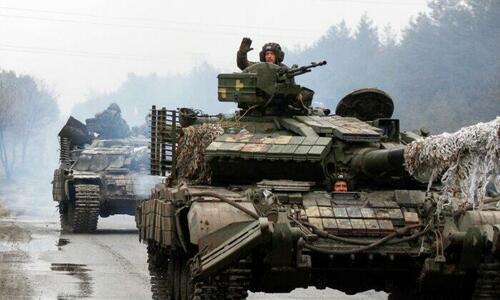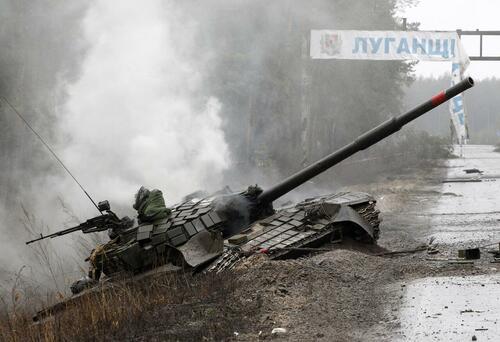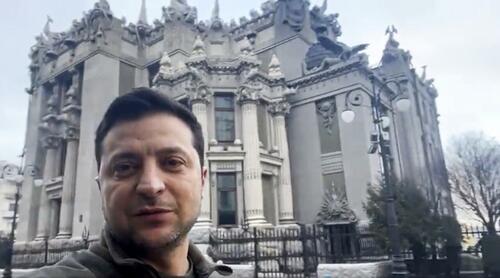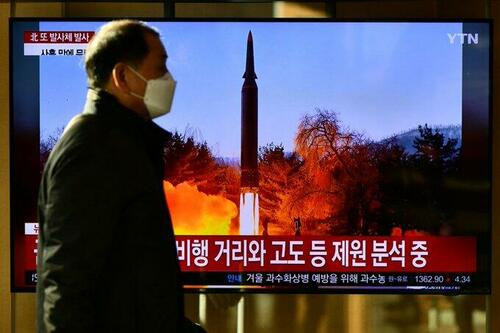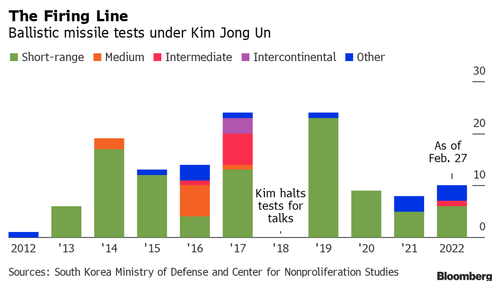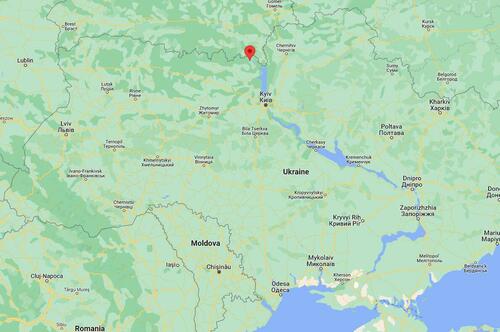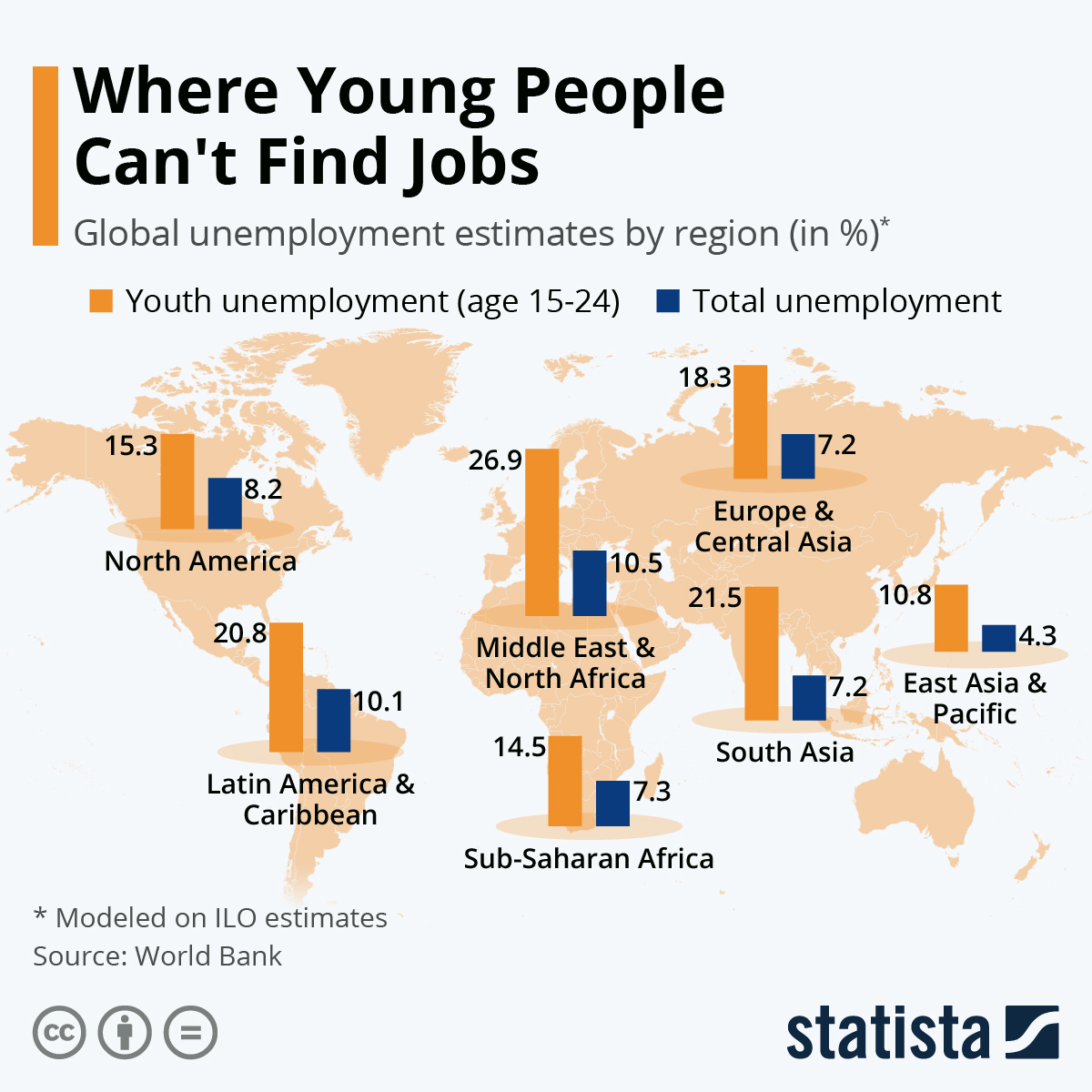Authored by Tom Luongo via Gold, Goats, ‘n Guns blog,
The EU has unveiled its first tranche of economic sanctions on Russia for its invasion of Ukraine. EU leadership looks even more angry about this outcome than US leadership does. Here’s the article covering this tangled mess by Sputnik News.
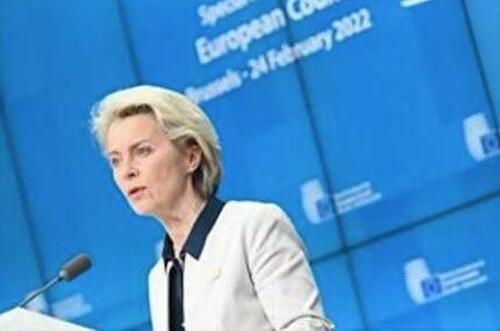
We know that the EU is very dependent on Russian energy and the existing sanctions have hampered EU-Russian trade for years now. Europe is incredibly vulnerable here to any form of supply/demand shocks as their financial system teeters on the edge of the abyss.
There is no solidarity between the US and the EU on these matters, as I’ve pointed out in post after post here. So, the question now is, if Europe is targeting Russian energy exports and the ability of EU banks to do business to buy Russian gas and other export commodities why would they pick this fight?
The answer must be that this is exactly what they wanted in the first place.
In the US we call this ‘suicide by cop,’ which is exactly how I framed it when asked by Sputnik for my thoughts on the subject this morning. I was asked on Monday before Putin’s intervention in Ukraine, to answer the following questions. Events moved beyond them, obviously, but I publish them here anyway because they are still of some value. {current editorial comments in brackets}
According to recent research, US liquefied natural gas export capacity will be the world’s largest by the end of 2022. Could it be that part of the whole game around Ukraine was about the US petroleum sector benefitting from the current standoff in Ukraine?
Of course. That is a sub-plot in this very complicated story. There are many factors that went into this standoff over Ukraine, which Russia is now accelerating towards an end-game state {boy howdy was that an understatement 12 hours later}. LNG exports from the US is certainly one of them, but I think the bigger issues concern the future of NATO, the security architecture of Europe and who controls it.
I see this as much as a fight between the US/UK and the EU over security as much as it is about the US’s long-standing antipathy to Russian energy exports. These issues are, of course, all intertwined.
Is the current political battle over Ukraine just a pretext for the US to earn money via the energy sector, increasing supplies?
No, it isn’t. It’s much deeper and nuanced than that. There are future weapons contracts for US and UK military contractors at stake here, as well as France’s desires to become a major player in European arms sales.
Russia, I believe, is being used as a bogeyman to advance internal European and ‘Anglo’ political agendas having more to do with shifts in foreign policy focus than just the ‘follow the money’ angle here. ‘Following the energy and arms money’ is an important consideration but I think they are now downstream of a much different security landscape in Europe by 2030.
The European Union is looking for ways to assert its independence from Washington D.C. Downing St. is pushing everyone into conflict for its own selfish and historical reasons, clinging to outdated political theories about controlling the ‘World Island’ and driving a wedge between Russia and China, which is achieving the exact opposite result.
How likely is it that the US might now try to establish control over transit routes going through Ukraine? Will the “Russian invasion” narrative be used as a pretext for doing so?
The transit routes through Ukraine in the minds of the Russian leadership fully depreciated assets that they unfortunately still continue to subsidize. Putin mentioned the cost to subsidizing a hostile regime in Kiev during his speech announcing the recognition of the Donbass, $250 billion over 30 years.
If the US wants control over those transit routes, that’s fine. Russia will happily shut off the gas through them, since it costs Gazprom money to ship gas through them at this point. Putin has ordered Gazprom to keep those pipelines filled as a fig leaf to Europe who has continually bitten his hand.
I expect he won’t care to re-up the transit contract with Ukraine when it expires in December 2024.
So, if DC wants this, Putin will oblige and then stop transit all together, citing conflicts with Ukraine.
To what extent can the US indeed provide energy security for Europe by supplying resources?
The total US LNG output according to the EIA for 2022 is 11.5 bcf per day, which is 115 bcm per year, or roughly the capacities of Nordstream 1 and 2 combined.
Is there 55 bcm of spare capacity (the size of NS2) in the US system to feed a new market in Europe? No, not with demand rising at more than 6% annually and accelerating as the world comes out of COVID-19 lockdowns.
The demand for European LNG is so high that US and Russian suppliers both have massive market opportunities there. So, this isn’t about the money, in the end. With most of Europe ending its COVID-19 restrictions in a desperate attempt to stave off political unrest, demand is only going to rise further.
Moreover, US LNG is far more expensive than Russian piped gas. This is simply a fact. And with the Biden administration working with Davos to lean on banks to retard investment into new oil and gas projects, long-term supply of energy to Europe from the US is limited anyway.
US exports will go to where the bid is the highest and with Europe’s terrible future prospects, massive debt overhang and lack of economic dynamism they will not be capable of outbidding other global customers for gas. That’s been the reason for the insane prices in Europe this winter, competition for limited gas supplies driving prices up, despite rising global capacity.
Can Europe survive without Russian energy supplies, if they were to be disrupted now due to the standoff and sanctions?
No. It simply is not possible especially with Germany shutting down perfectly good nuclear reactors this year. The big winner will actually be France in the short term who can sell excess electricity capacity to Germany for outrageous prices thanks to its massive nuclear footprint.
What’s happening now is Germany going along with the political flow, slowing the certification of Nordstream2 in the hope that something can be done to keep the worst-case situation unfolding in Ukraine.
It’s too early to tell how violent things will get in the Donbass {very, apparently}, but it’s possible Russia’s recognition of the Donbass inspires other regions to declare their independence, pushing the UAF back towards Kiev. {all it will take is Russia’s full blow invasion of the country} Politically, the Germans will eventually have to make a choice. Russia and independence themselves or continued subordination to D.C.
{So far Germany has chosen poorly. This speaks to how surprised even Europe was by the size and scale of Putin’s move into Ukraine was. The reactions today by the EU and NATO scream that Putin promised them he wouldn’t do this and he did is anyway. Knowing Putin, the EU likely broke some other backroom deal.}
Is the fate of Nord Stream 2 at risk yet again amid recent developments?
Not likely. {this didn’t age well. It’s possible now that NS2 is abandoned by Russia in retaliation for NATO and EU stupidity.} The nomination of former German Chancellor Gerhard Schroeder to the board of Gazprom tells me that this is his reward for shepherding the project to this point and its eventual completion.
That said, Russia’s trade surplus is so high that they hold the cards on trade. No matter what sanctions packages are put in place, if the world wants what Russia sells, which goes far beyond oil and gas, they will eventually have to deal with Russia on her terms, not theirs.
For example, the recent announcement by China and Russia to expand gas sales by another 10 bcm per year and settle the trade in euros can easily be amended if the EU oversteps here with sanctions over Ukraine.
I’m sure if the EU tries to change the terms of the existing contracts currently settled in euros thanks to unilaterally imposed sanctions Russia will simply say, that’s fine, pay us in Rubles. And then let’s watch to see what happens after that.
The lesson here is that balance sheets matter. Russia’s is clean, with low debt, high reserves, a trade and current account surplus and plenty of policy room for its central bank to respond to sanctions. Sanctions against her targeting the ruble under these conditions are toothless, in fact, more toothless now than in 2014.
Is LNG a viable alternative to less expensive Russian gas speeding over to European countries?
As a stop gap, anything is viable. The LNG tanker market is a mess right now but that should revert back to normal soon. When you see current conditions in a market like that of LNG carriers, negative charter day-rates, it isn’t sustainable, any more than oil pricing in May 2020 going negative.
So, it’s only a viable alternative for a certain amount of time. In the long run, high energy prices for Europe are simply a drain on potential growth, or in Europe’s case, recovery. Absent a massive spending blitz by the EU, which it will never agree on in any reasonable time frame, Europe’s energy future without Nordstream 2 and the now canceled East Med pipeline from Israel, is bleak.
The setup now is for a complete collapse of European capital markets as the Fed moves to raise interest rates in March, further putting stress on the euro and Europe’s ability to pay for its import needs.
What’s clear from my responses to Sputnik and even from their questions is that neither side of this exchange expected the type of military move by Putin when these questions were formulated and responded to.
But much of the framework of these questions is still in place. The EU is in serious trouble.
Now that things have progressed in Ukraine far beyond what everyone thought, including many members of the political brass in the EU, the question now is whether the sanctions war will escalate from here.
And that’s where my ‘suicide by cop’ analogy is relevant:
[Sputnik asks about Europe’s energy security]
It all comes down to whether the EU decides to destroy its economy by doing what we Americans call ‘suicide by cop.’ That’s where someone wants to die and picks a fight with a policeman in order to get the cop to shoot him.
Europe is staring at a complete collapse of its economy if they sanction Russia’s energy sector and shut down her ability to do business with their banks. The question no one is asking is, “Did they provoke this fight on purpose to do exactly this?” From where I’m sitting, it looks to me like their insistence on zero diplomatic concessions to Russia led directly to this outcome. So, the answer to my question is ‘Yes, it was deliberate.’
But, even if I’m wrong and there are other unstated reasons why Russia blitzed Ukraine’s military installations off the map last night, the fallout from this will be far higher energy prices than the weak coalition governments will be able to sustain. I expect the map of Europe will look very different by the end of 2024 than it does today, reaching far beyond Ukraine.
* * *
Join my Patreon if you aren’t suicidal
BTC: 3GSkAe8PhENyMWQb7orjtnJK9VX8mMf7Zf
BCH: qq9pvwq26d8fjfk0f6k5mmnn09vzkmeh3sffxd6ryt
DCR: DsV2x4kJ4gWCPSpHmS4czbLz2fJNqms78oE
LTC: MWWdCHbMmn1yuyMSZX55ENJnQo8DXCFg5k
DASH: XjWQKXJuxYzaNV6WMC4zhuQ43uBw8mN4Va
WAVES: 3PF58yzAghxPJad5rM44ZpH5fUZJug4kBSa
ETH: 0x1dd2e6cddb02e3839700b33e9dd45859344c9edc
DGB: SXygreEdaAWESbgW6mG15dgfH6qVUE5FSE
